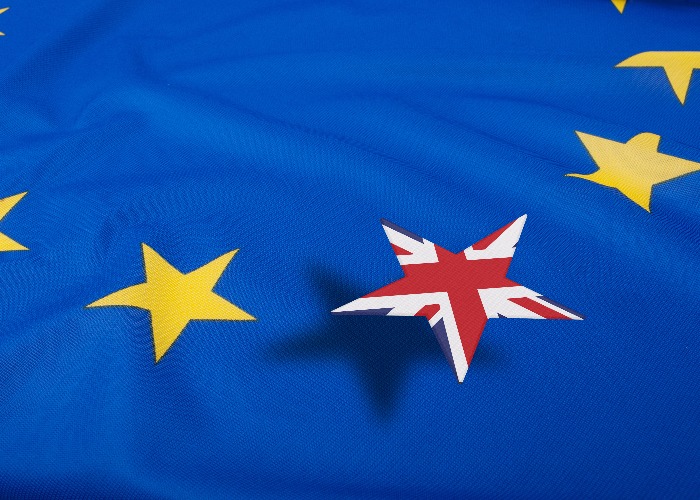Brexit 2016: how it would affect property prices, air fares, petrol, pensions, jobs and more

What would a Brexit really mean for your money? We take a look at what the experts think.
The possibility of Britain leaving the European Union is a hot topic at the moment.
The arguments are fierce and passionate. Both sides are wheeling out lorry loads of figures backing up their assumptions in a desperate bid to persuade us to buy into their arguments ahead of the referendum on 23 June.
So what would a Brexit actually mean for us? Well, the answer is quite a bit. Although it’s impossible to be 100% sure, the UK heading for the exit could affect everything from the value of our houses to the costs of filling up with petrol and jetting off on holiday.
Let’s take a look at some main areas:
Property prices
Online estate agent eMoov predicts an exit would cause a nervous ripple effect across the UK that could see house prices dropping 5%. However, Kate Faulkner, founder of consultancy Designs on Property, believes that while it will have an impact, it may not be that extreme.
She added that a Brexit may hold back investment in building new homes. such as landlords from Europe currently investing in big rental property projects. "This means the rental market supply could also be hit," she said.
Air fares
You might have to forget your cut-price holidays. Dame Carolyn McCall, chief executive of airline easyJet, insists that staying in the EU is the only way to ensure everyone will continue to enjoy the huge benefits it has provided for UK travellers and businesses.
Writing in The Sunday Times, she pointed out that the costs of flights have plummeted and the range of destinations has soared as a result of Britain’s membership. "How much you pay for your holiday really does depend on how much influence Britain has in Europe," she said.
Petrol
Prices have been falling at the pumps, but this could reverse if analysts are right and an EU exit leads to a 20% reduction in the strength of the pound against the dollar. However, Simon Williams, the RAC’s fuel spokesman, isn’t expecting a dramatic impact:
"A 20% fall in the value of the pound would – based on current exchange rates – only add £2 to the cost of filling up an average 55-litre petrol car, as a result of the average price of a litre rising around 4p from 101.95p to 105.56p," he said.
"This would mean a two-car household filling up with petrol twice a month would spend £232 as opposed to £224."
Pensions
There are two ways in which your pension could be affected, according to Tom McPhail, head of pensions research at Hargreaves Lansdown. The first is what could happen to gilt yields and/or equity prices over the coming months. "Trying to second guess at this stage which way the vote will go and what it will do to investments is almost certainly a mug’s game," he said.
The other potential issue is regulation being handed to the UK. McPhail is wary of arguing whether this is a good or a bad thing.
"All the myriad regulatory edicts emanating from Europe would become the sole preserve once again of our domestic regulators but I’d be wary of arguing conclusively as to whether this would be a good thing," he added.
Jobs
How secure is your job? Many large European corporates are heavily invested in the UK and a Brexit could see them having a rethink, according to business consultants Global Counsel, which believes it could affect the commercial logic for this investment.
"The UK [may be] less attractive as a gateway to Europe, as a base for corporate HQs and as a location for investment from Europe," it warned. If so, cutbacks could be on the cards.
Cash in your pocket
The pound has already weakened on the back of Brexit fears and this may worsen, according to Darius McDermott, managing director of Chelsea Financial Services.
"The likes of HSBC have said it could devalue by as much as 15% and a run on the pound would not be pleasant," he said. "A weaker currency means higher inflation and less money in your pocket."
Prices in the shops
How about the cost of everyday items? Prime Minister David Cameron believes prices may rise.
"We’ve got to think about the issue of the prices in our shops," he told workers at BAE Systems on a recent visit. "Being part of a single market keeps our prices down. I think there’s a real risk that, if we leave, we would see fewer jobs, less investment and higher prices."
Investments
Patrick Connolly, a chartered financial planner with Chase de Vere, believes that investments could be in for a rocky ride. "Uncertainty could lead to additional investment volatility in the run up to the vote - and markets hate uncertainty."
However, talk of a possible Brexit has already boosted gold investing, with people embracing supposedly safer assets, according to Adrian Ash, head of research at BullionVault.
"Brexit fears for the Pound and FTSE seem to be driving this big jump in UK investors buying gold and silver," he said. "There’s a sense of urgency we haven’t felt since the financial crisis."
What do you think? Let us know in the comments below.
Maximise the cash in your pocket by switching to a current account with 5% interest
The latest from loveMONEY:
Easy way people are people are beating the MOST HATED tax
From Oscar winners to cult classics: cheap and free cinema tickets
The best cheap Mother's Day gift ideas
8 extraordinary things the Government could do to destroy the deficit
Comments
Be the first to comment
Do you want to comment on this article? You need to be signed in for this feature